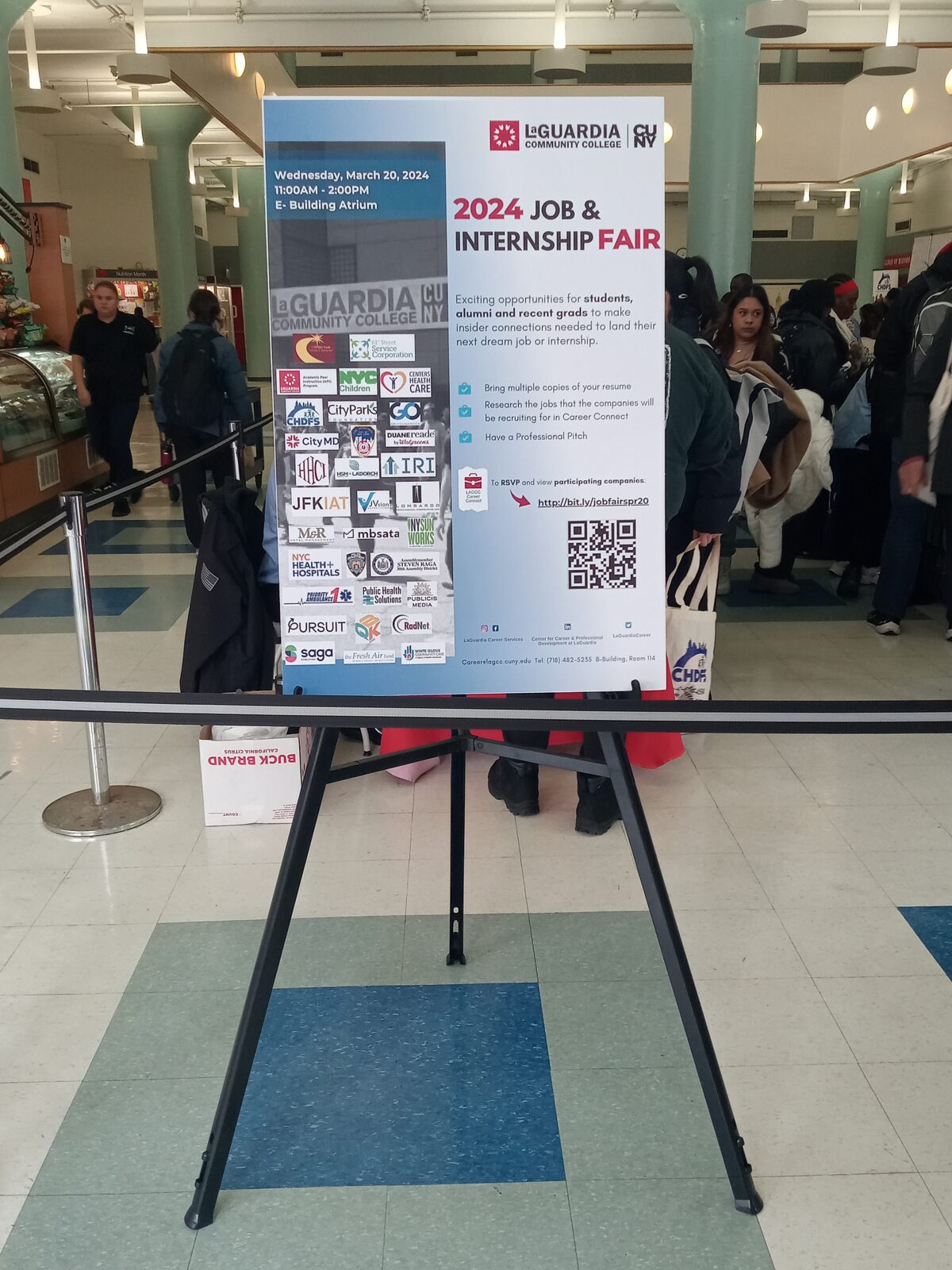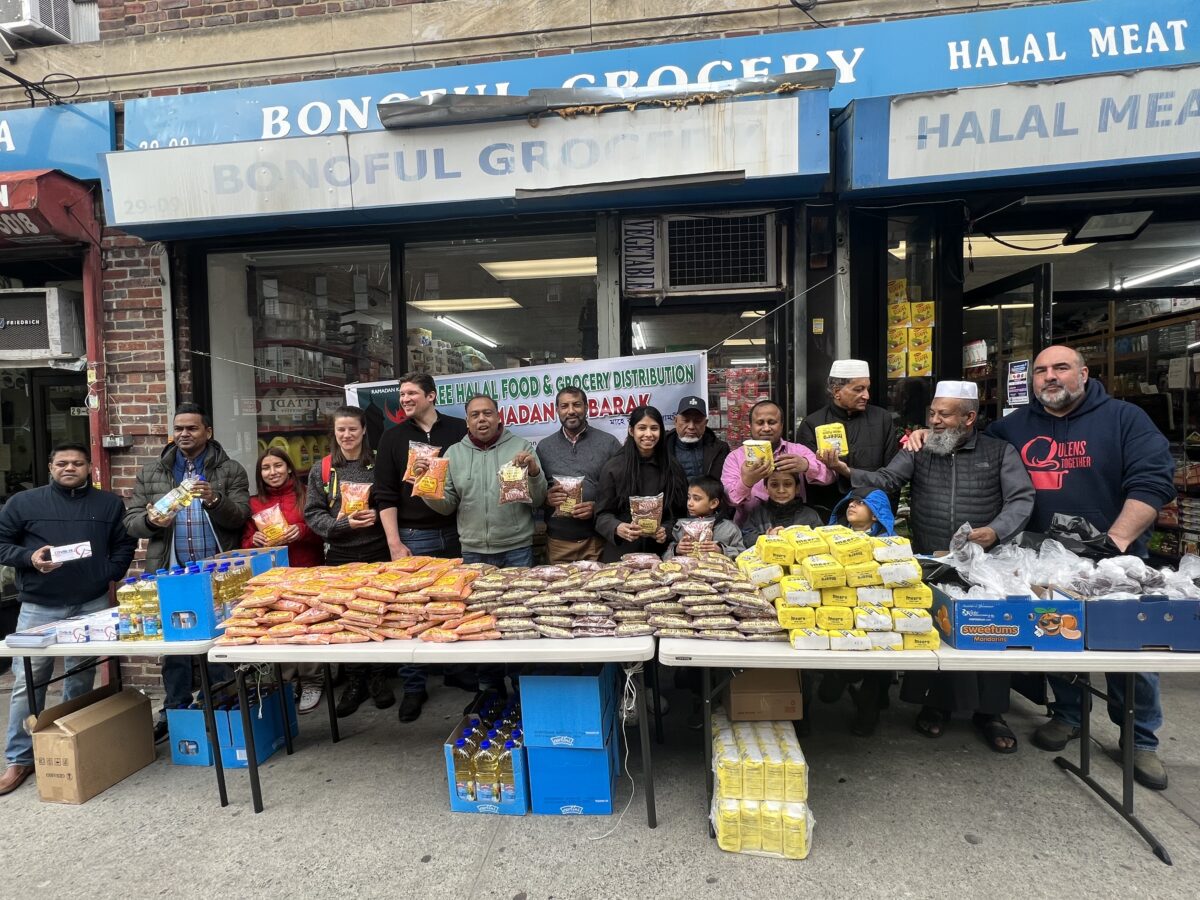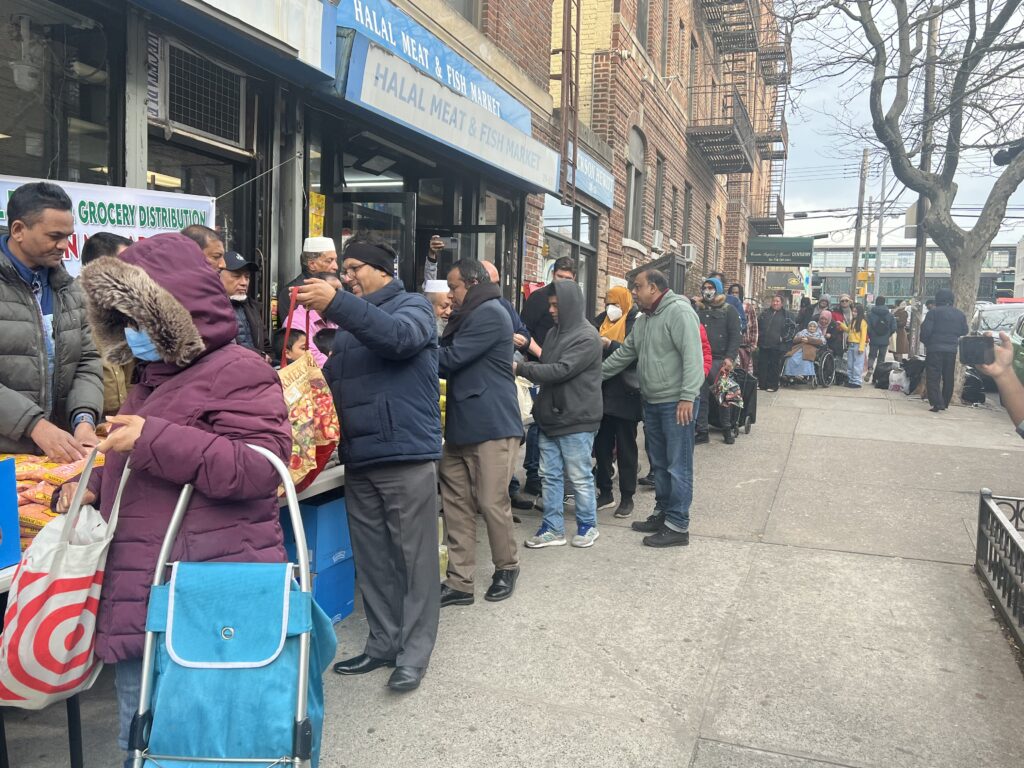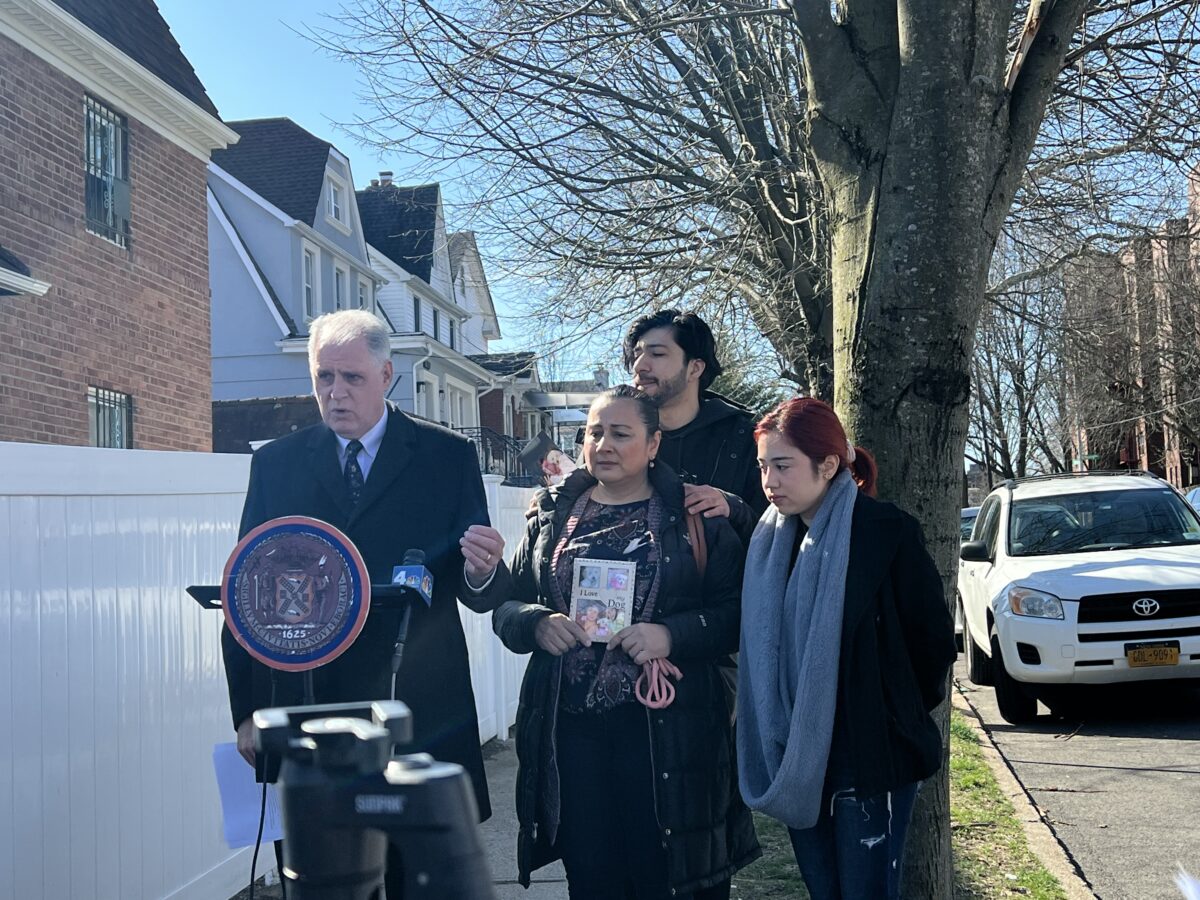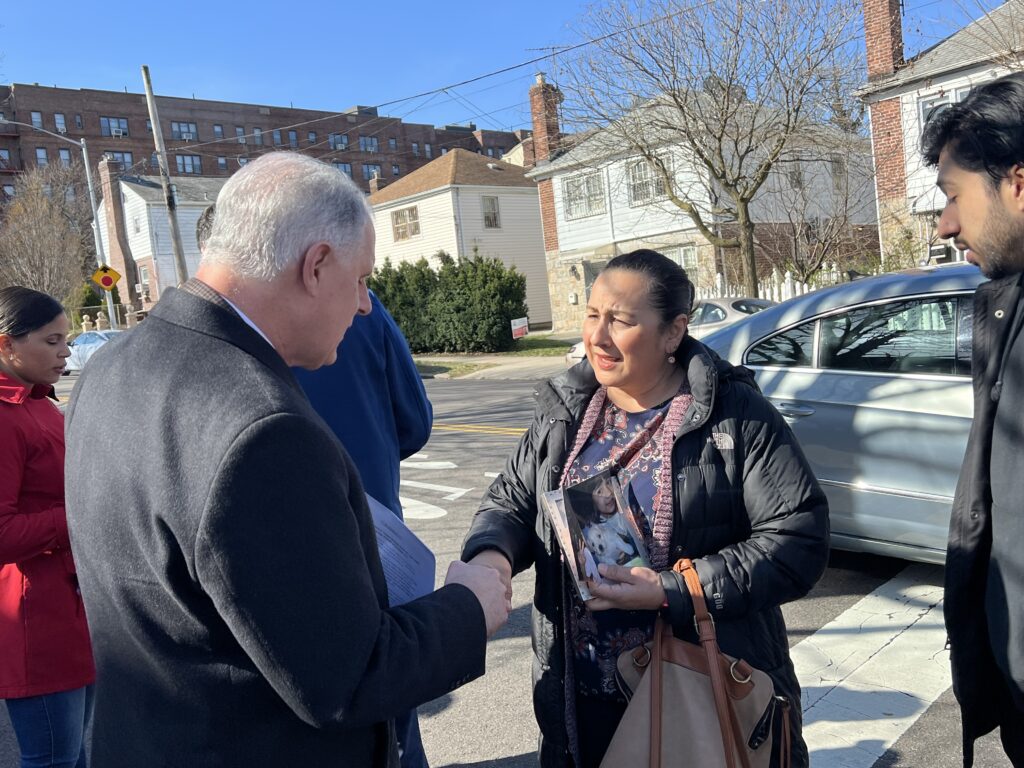LaGuardia Holds Job and Interview Fair for New Spring Semester
by Sherica Daley

LGuardia Community College students meeting recruiters from private companies, city agencies’, retail and community outreach
At the start of the new Spring semester, LaGuardia Community College held its Job and Interview Job Fair on March 20, 2024. The jam-packed event held endless opportunities as was designed for every type of LaGuardia student: from current students to recent graduates, and alumni. This was created for employers can select from various skills and work experience. The fair catered to all the needs of the students helping them to meet the goal of graduation and being successful afterwards.
The fair brought in numerous recruiters from various private companies, retail companies, and city agencies to meet and greet with students of all majors. Students looking for a summer job or a part-time job with schedule flexibility with the school schedule. Retail pharmacy chain pharmacy Walgreens was meeting with students and giving resumes to store manager recruiter Tyler Huff. He and other managers from the company took resumes from students with no job experience looking for entry-level jobs. The popular retail chain was recruiting customer service associates and offered flexibility for students. Students who submitted resumes were also directed to fill out: applications. jobs.walgreens.com for the area they desired to work in.
Another opportunity for summer jobs in education is becoming a tutor with the Go Foundation. The Go AmeriCorp Fellows Program community tutoring program with an intense focus on student’s developmental needs. The program is a full-time opportunity to tutor students from K-12 predominantly ELA and math classes with weekend flexibility. This is a great opportunity for students looking to gain experience in education and working with children all before graduation. “We are looking for those who are interested in giving back to the community, mission-driven, and open to new challenges” explained campus recruiter Jeunet Fidelino. “ We are looking for someone who can commit to 10 months of full-time service from August 2024 to June 2025,” she explained. You can connect with Fidelino about the next session with the Go Foundation can be mailed to: jfidelino@gofellows.org
If you like with children but want an adventure outdoors, positions for a camp counselor, come with room and board, with the Fresh Air Summer Camp in Sharpie Reservation in Fishkill, New York. The Fresh Air Fund is a not-for-profit youth development organization for New York City’s underserved communities in New York. Other positions, recruiter Freddie Wade, was looking for were lifeguards, office associates, and driving staff for the upcoming Summer of 2024. Resumes for this position can be submitted at: camping@freshair.org.
If you are an expert on tech and social media, The Pursuit Fellowship can prepare you for a career in app development and computer coding. Past participants are now employed with companies like Twitter, Microsoft, and Uber. The goal of the Pursuit Fellowship is a rigorous program that trains adults from under-resourced communities. The Fellowship also provides career services to assist with job searching. Along with submitting resumes to a recruiter, students can fill out the online application at pursuit.org/fellowship.
LaGuardia students looking to fulfill their internship credits for graduation got to meet a representative from the District 30 New York State Assemblymember Steven Raga Summer 2024 Internship Program. The internship can be virtual or in-person at the district office located at 55-19 69th Street in Queens. District 30 served the communities of Woodside, Elmhurst, Maspeth, Middle Village, Jackson Heights, and Astoria. The office is looking for interns interested in their local and citywide government, public policy, and knowledge of social media. They have three internship positions in Graphic Design, Communications, and Public Affairs.
The internships are a minimum of 12 hours per week part-time or full-time Monday-Friday. Interested candidates can mail to Victoria Leachy, at lachyv@nyassembly.gov
Students approaching graduation, have many opportunities to look forward to. Many city agencies and private companies came to speak to students about positions they are eligible for and start applying for, such as a new position with the New York Police Department as an NYPD Special Officer. This is a news position that works with the Administration for Children Services[ACS] to help the City’s vulnerable youth and families. Representatives gave information on the Civil Service Exam and the job benefits: Pension and Union Benefits, higher education opportunities, student loan forgiveness and raises after three years of service. Interested candidates, can get detailed information at the NYC Special Officer page.
If working New York City Youth and Justice system and making a difference in the community can look into a position as a Youth Development Specialist and or Child Protective Specialist.
The Youth Development Specialist is a position on a team with ACS and the Youth Protective Specialist is an entry-level position with the City of New York that starts at $55,000 yearly with raises after 18 months of services to $60,000.
For students interested in healthcare, companies like CityMD are hiring for non-clinical positions in Queens. “We are hiring for Patient Service Representatives and Office Supervisors all over Queens” explained recruiter Lexie Morales. “We are looking for on-site clinical X-Ray Techs, and LPNs,” explained Morales. “Anyone interested can mail their resumes at amorales5@summithealth.com or feel free to reach out with any questions,” she explained.
Other private companies were hiring for healthcare positions at 61st Street Service Corporation. That was recruiting for non-clinical positions in their Manhattan locations as a Certified Medical Assistant position and Billing and Coding and White Glove Community Care, recruiting nursing graduates of the LaGuardia’s Practical Nursing Program. White Glove offered paid training and experience with ICU-level patients. “We are excited to meet everyone and take resumes on the spot” explained Dianelis Negron, Talent Acquisition Specialist with White Glove. Resumes can be mailed to her at:
As the fair started closed, recruiter Fidelino highlighted her favorite part of her visit to LaGuardia “My favorite part of the fair was interacting with LAGCC students, they were all engaged and intentional with their time and questions about our organization and my work.” she explained. “It was such a productive fair where I was almost talking the whole time and I even ran out of collateral!”

The Job and Internship Fair coming to an end



